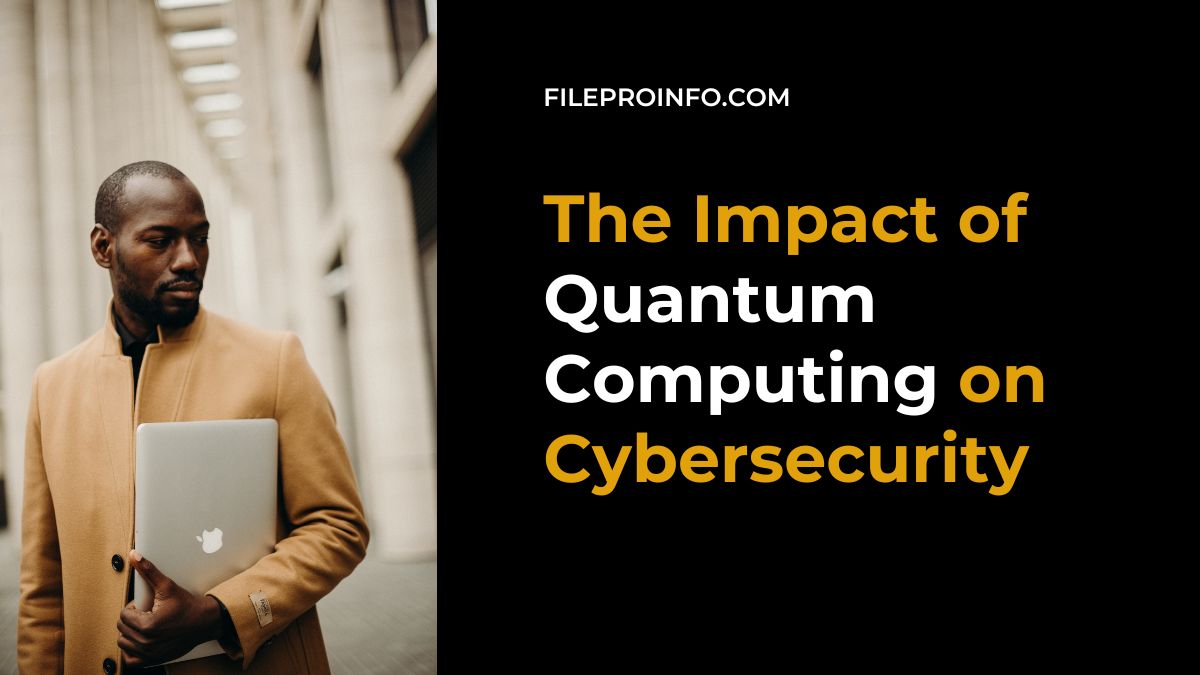
In the world of cybersecurity, the rise of quantum computing is causing a stir. Quantum computers are a new kind of computer that is built on the principles of quantum mechanics, which allow them to perform calculations that would take traditional computers hundreds of years to complete. While this technology has the potential to revolutionize many industries, it also poses a significant cybersecurity threat. In this blog post, we’ll explore the basics of quantum computing, its potential impact on cybersecurity, and what steps we can take to prepare for the future.
The Basics of Quantum Computing:
Quantum computing is a relatively new and rapidly evolving field that has the potential to revolutionize cybersecurity. To understand what quantum computing is, it’s important to first look at traditional computing. Traditional computers use bits, which can either be a 0 or 1. Quantum computers, on the other hand, use quantum bits or qubits. Qubits can exist as both a 0 and a 1 simultaneously thanks to the laws of quantum mechanics.
This allows quantum computers to perform certain tasks much faster than traditional computers. For instance, factoring large prime numbers – which is key in encryption – would take traditional computers years to complete while it could take just minutes for a quantum computer. This has huge implications for cybersecurity because many of our current encryption methods are based on this type of factorization problem.
One major challenge facing the development of practical quantum computers is something called decoherence.
The Threat to Cryptography:
Quantum computing has gained immense popularity in the recent past due to its unrivaled computing power. However, this technology poses a significant threat to cybersecurity as it can break traditional encryption methods used to safeguard sensitive information. Encryption is converting plain text into an unreadable format that can only be deciphered with a specific key or password. It is one of the most effective ways to protect data from cybercriminals.
Quantum computers use quantum bits (qubits) instead of binary digits (bits) and have the potential to solve complex mathematical problems at an unprecedented pace. The speed at which quantum computers operate means they can decrypt encrypted codes and algorithms much faster than classical computers, making them a formidable threat to cryptography. As such, cybersecurity experts are scrambling to develop new encryption methods that can withstand quantum computing’s processing power.
The Solution: Post-Quantum Cryptography:
The threat of quantum computing to cryptography has led to the development of new encryption methods that are resistant to quantum attacks. These methods, known as post-quantum cryptography, use different algorithms that are designed to withstand attacks from quantum computers. Post-quantum cryptography is still in its early stages, but it’s a promising solution to the threat of quantum computing.
The Future of Blockchain:
The future of blockchain technology is a topic that has been widely discussed among experts and enthusiasts alike. Blockchain technology, which is used to secure transactions and sensitive data, has the potential to revolutionize various industries like finance, healthcare, and logistics. However, the rise of quantum computing could have an impact on the future of blockchain.
Quantum computing is a field that studies how computers can use quantum mechanics principles to process information more efficiently than traditional computers. This new computing paradigm poses a threat to the security of current encryption methods used in blockchain applications. As quantum computers become more powerful over time, they may be able to break through the encryption algorithms used by existing blockchains.
Despite this challenge posed by quantum computing, many researchers are working on developing new solutions that will help protect blockchain systems from being compromised. These efforts include developing new encryption methods or even creating entirely new blockchain frameworks explicitly designed for quantum-resistant cryptography.
Preparing for the Future:
The threat of quantum computing to cybersecurity is very real, and we must take proactive steps to protect sensitive data from cyberattacks. One of the most important steps we can take is to transition to post-quantum cryptography to protect against quantum attacks. In addition, researchers are also working on developing quantum-resistant blockchain technology, which could help to secure sensitive data in a post-quantum world.
Conclusion:
Quantum computing is a powerful technology that has the potential to revolutionize many industries, but it also poses a significant cybersecurity threat. As quantum computers continue to evolve, we must take proactive steps to protect sensitive data from cyberattacks. By transitioning to post-quantum cryptography and developing quantum-resistant blockchain technology, we can help to ensure that our data remains secure in a post-quantum world.




